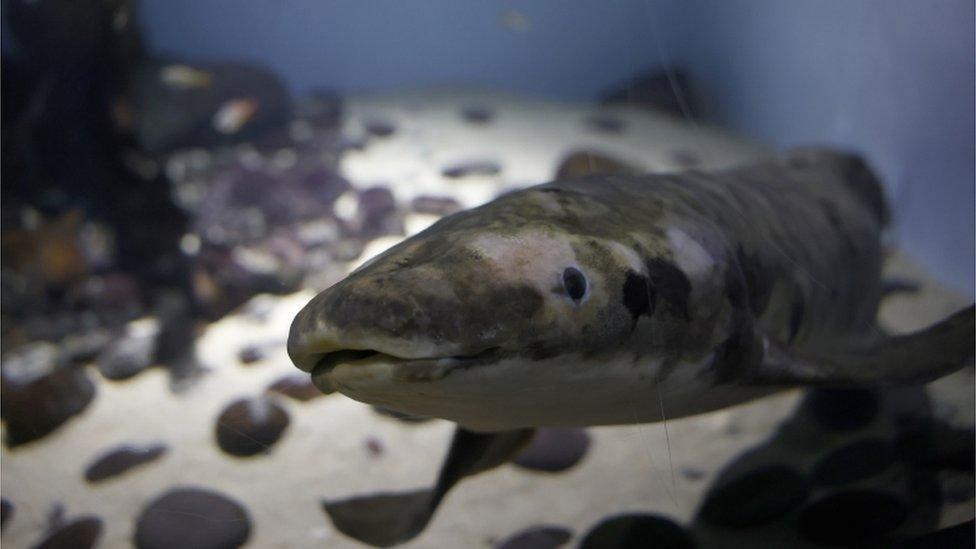Zoos: Should large animals be kept in zoos?
- Published
- comments
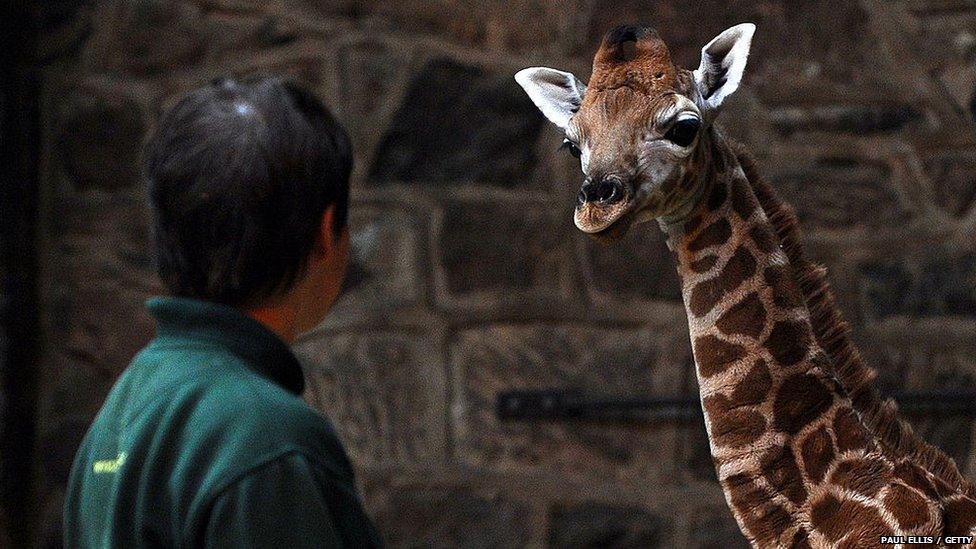
Do you think large animals should be kept in zoos?
An animal welfare charity has released a survey that says three-quarters of people that took part don't want big animals kept in zoos.
The Born Free Foundation, a charity which campaigns for animals to be kept in the wild, commissioned Opinion Matters to do a survey of 2,000 people from across the UK.
Their results showed 76% of those surveyed said they wanted the UK government to, over time, stop allowing large animals to be kept at zoos.
The foundation say this shows there is "a tide of public support" for their campaign to keep animals out of zoos, and that it's something "politicians and decision-makers can no longer afford to ignore".
However, not everyone agrees.
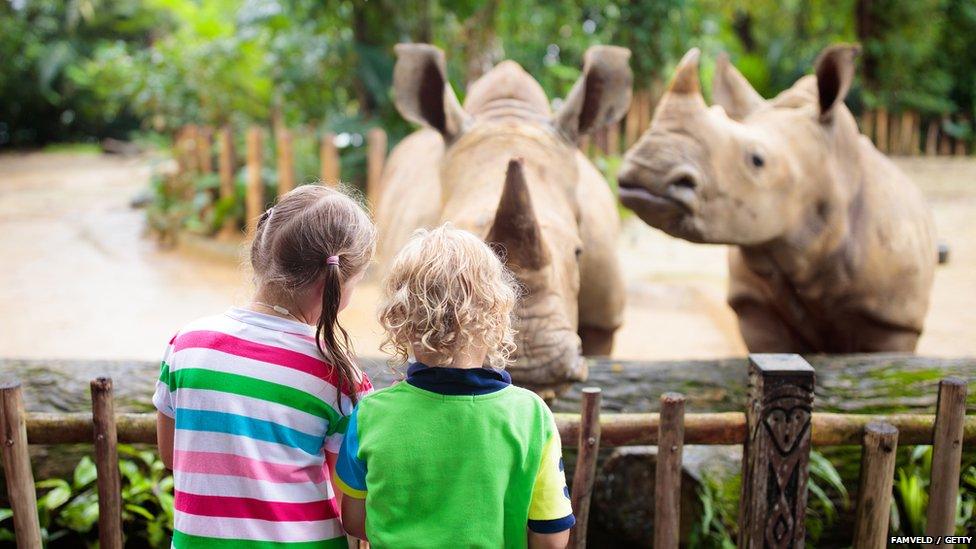
One organisation told Newsround that over 35 million people visit their zoos and aquariums each year
The British and Irish Association of Zoos and Aquariums (BIAZA) - who represent zoos in the UK - told Newsround that the figure from the Born Free Foundation "doesn't seem to relate to the real world".
They say 35 million members of the public visit their zoos and aquariums on a normal year and as a result "it is overwhelmingly clear that the Great British public support good zoos and aquariums to care for animals and to make our planet a better and wilder place.
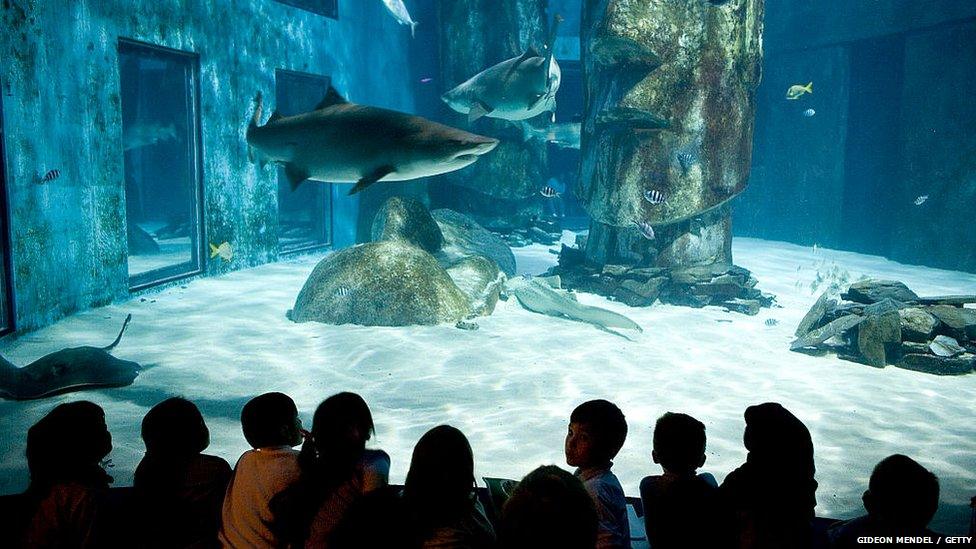
BIAZA also represent aquariums in the UK
And that a YouGov poll published in 2019 found that 66% of respondents thought zoos had a positive impact on animal conservation. In their survey, 3938 people were asked.
Let us know in the comments what you think about zoos, and whether or not you think large animals should be kept in them.
What are the arguments for zoos?
Those in favour of zoos argue they are important for education and conservation.
It's legally required for zoos in the UK to be a place of learning - a law passed in 1981 called the Zoo Licensing Act that requires zoos to educate the public, rather than just be places for entertainment.
When you go to one, you'll see lots of information about the animals you come across, and activities are set up to encourage more active learning about them.
Many people see this as a good thing, as the more a person knows about animals, the better and more likely they are to protect them.
Conservation means the act of protecting animals and other forms of wildlife from going extinct.
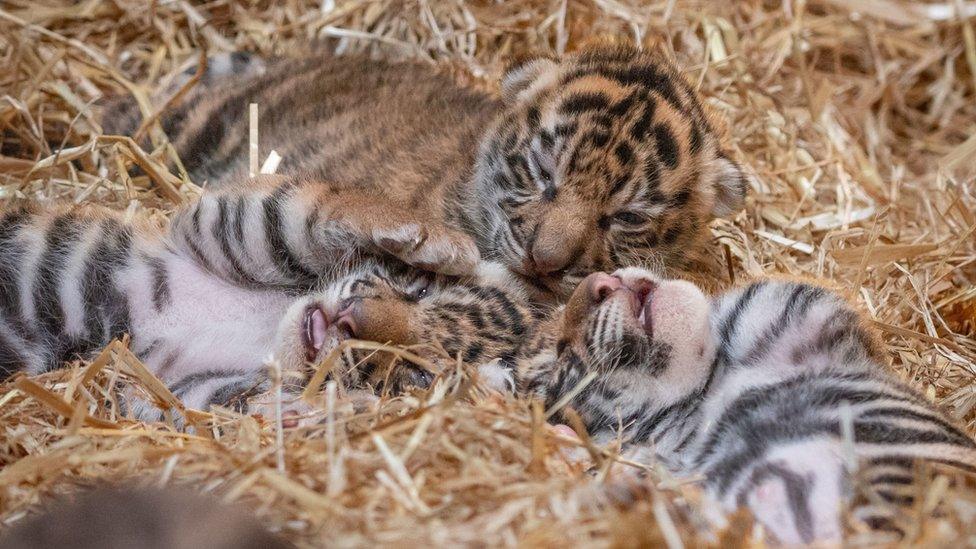
Baby tigers like this one are born in breeding programmes at zoos
Supporters of zoos think that they're key in keeping some of rarest animal species alive.
BIAZA told Newsround: "We're in the midst of an ongoing, global extinction crisis. The UN estimates more than one million species could be wiped out in our lifetime.
"Good zoos are on a mission to halt and reverse this."
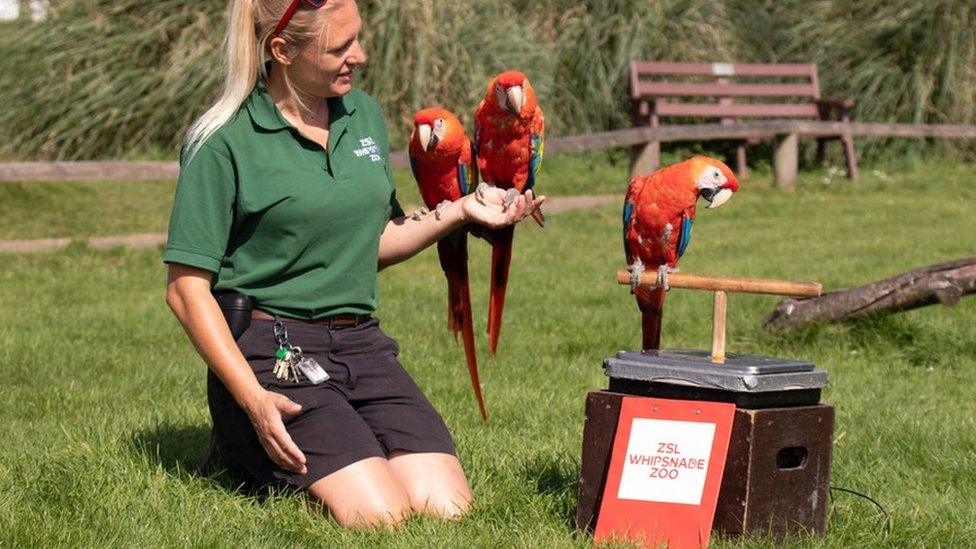
These scarlet macaws are getting weighed
What are the arguments against zoos?
One argument is that you'll never be able to exactly replicate an animal's home environment if they're not from the UK.
For example, African elephants can be found in zoos across the UK, but the hot climate in the countries they call home is very different to the changeable and often cold weather we have here.
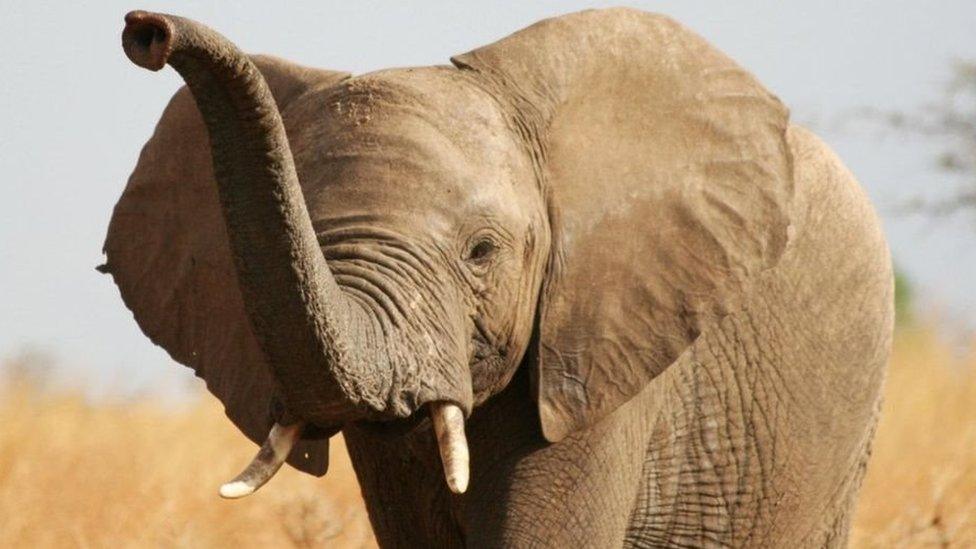
African elephants like this one are used to very warm climates
The UK's largest animal welfare charity, the RSPCA, believe strongly that elephants shouldn't be kept in zoos for this reason - they said in a report published in 2002: "For most elephants the European climate may be too cold and wet - they can spend up to 16 hours confined indoors in cold weather."
A spokesperson told BBC Newsround: "The RSPCA believes that animals should only be kept in captivity if good welfare can be assured - and for some species this may never be possible.
"Animals need to be kept in a way that meets the needs and normal biological requirements of their species, in sufficient space containing the necessary shelter, cover and environmental stimulus so as not to cause distress or suffering."
And some people think we just don't need zoos anymore.

Soon, you could visit animal habitats across the world using a headset like this one!
With technology like CGI, robotics, and virtual reality, conservationists will soon be able to create immersive experiences where someone could not only learn about animals, but walk among them in their natural habitat.
National Geographic reported that there are already some programmes that allow you to experience life as the animal itself.
So, what do you think? Are zoos a good thing or should they be banned? Let us know in the comments!
- Published12 August 2023
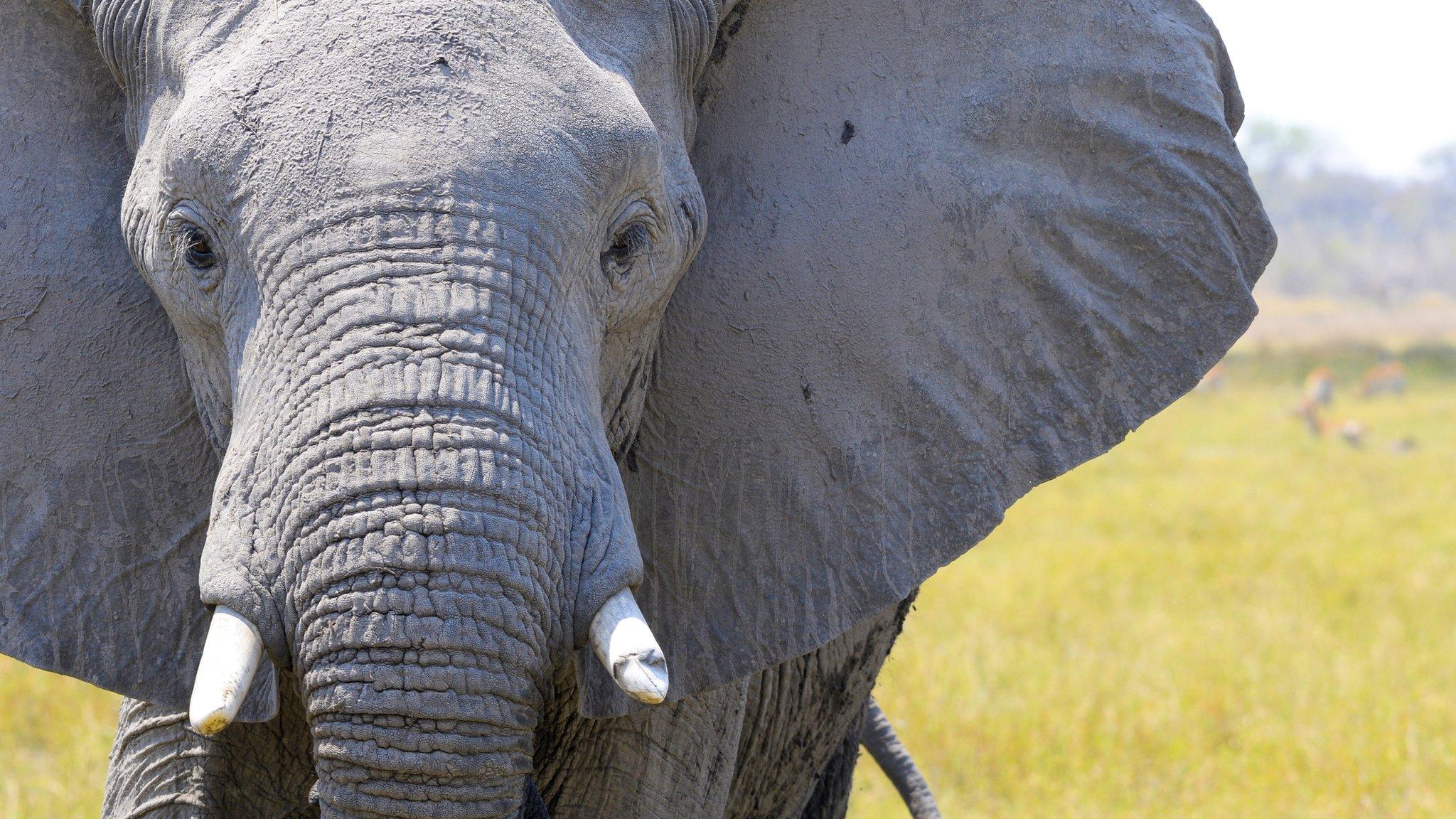
- Published17 August 2022
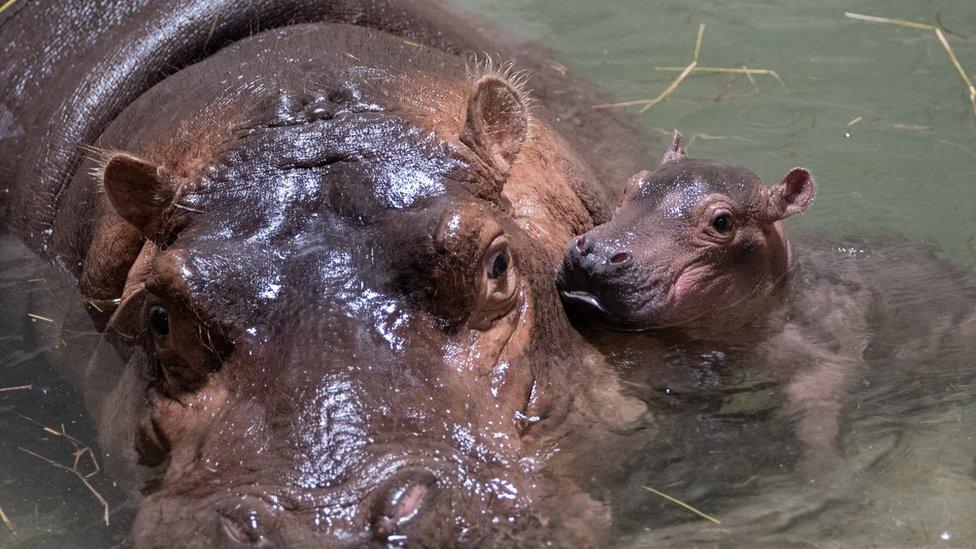
- Published27 January 2022
